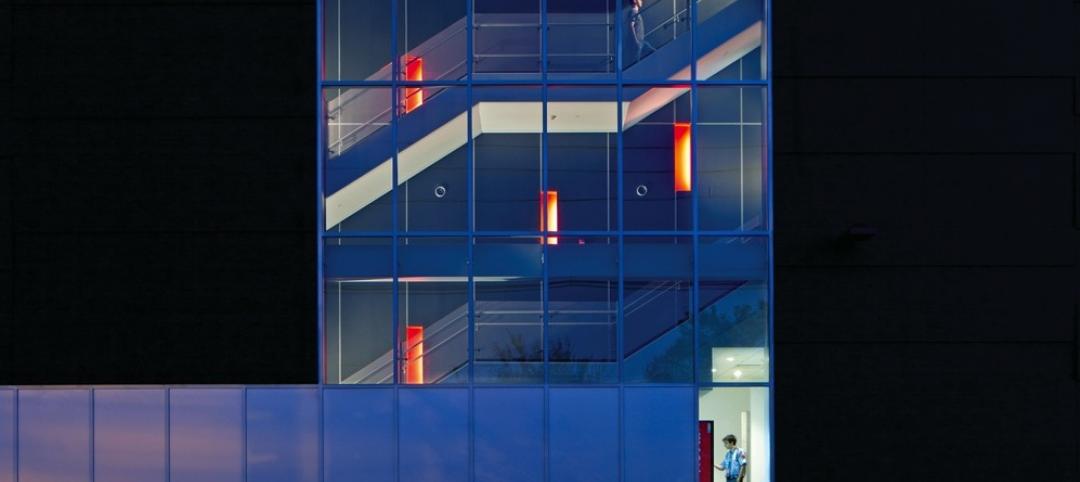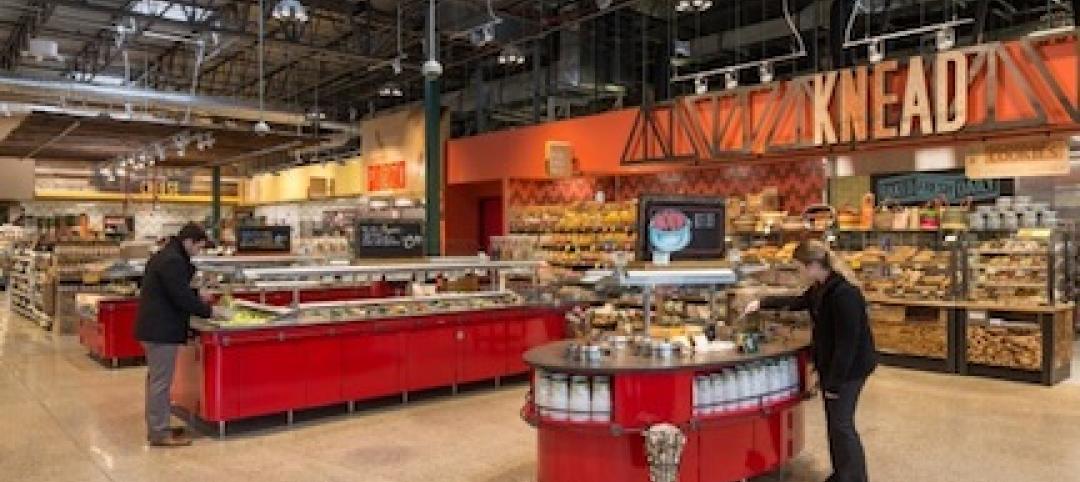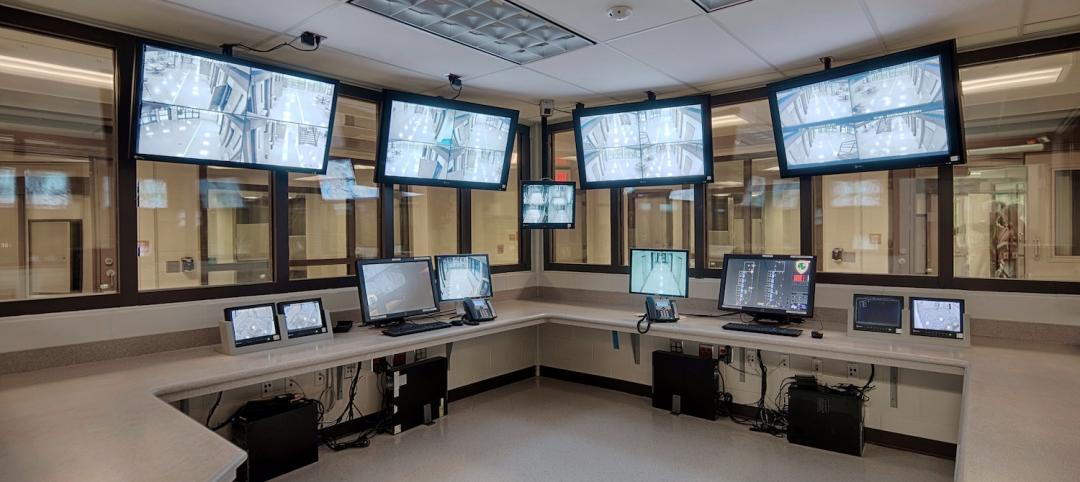AECOM and Van Alen Institute, with 100 Resilient Cities – Pioneered by The Rockefeller Foundation, recently announced four finalists for Urban SOS® 2017: hOUR City, a global student ideas competition that challenged multidisciplinary teams to connect more people in regions around the world to the opportunities found in contemporary cities.
An “hour city” radius — the distance people can travel in one hour — has historically defined the boundary of a city. However, with the forces of globalization and dramatic geographic, social and economic shifts affecting cities everywhere, the time has come to imagine new ways to connect people in suburban, rural and isolated urban communities.
The four finalist proposals and teams are:
Alternative Ways of Transportation, Bangkok, Thailand
Submitted by Wilaiwan Prathumwong, Perada Plitponkarnpim and Patcharida Sricome, all from King Mongkut's University of Technology Thonburi, the team developed a new, formalized multimodal pathway along one of Bangkok's many underutilized canals, connecting isolated residential communities to public transit.
The Healthy City, Oakland, California
Submitted by Vincent Clement Agoe, Derek Lazo, Serena Lousich, Mark Wessels and Sarah Skenazy, all from the University of California, Berkeley, the team connects communities suffering from high rates of chronic diseases (e.g., asthma, diabetes, etc.) to the physical spaces and resources of healthcare providers, using traffic calming, recreational opportunities and new transit options.
The Holding Project, Belfast, Northern Ireland
Submitted by Sean Cullen and Chris Millar from Queen’s University Belfast, the team proposes a joint-housing and economic development plan in central Belfast, tailored to young renters aged 18-35. On publicly-owned vacant sites, the team envisions new pre-fabricated micro-units that would save construction time and costs; tenants would set aside 20 percent of their monthly rent as savings.
New Suburban Living, Melbourne, Australia
Submitted by Lisa Ann Garner from Universität Der Künste and Lauren Garner from RMIT University, the team developed designs and a planning process for new types of housing in Melbourne's Middle Suburbs to address the region's housing shortage and better meet the needs of residents.
Launched in May, hOUR City invited students to tackle urgent transportation, housing or economic development challenges facing cities around the world and to create outcomes that promote equal access to opportunity. 86 teams entered, comprising nearly 300 students from 31 countries around the world and representing 114 unique academic disciplines.
"In our competitions, research and public programs, Van Alen develops solutions to create more equitable cities and communities," said Van Alen Institute Executive Director David van der Leer. "We're proud to guide tomorrow'sleaders to tackle urgent questions about suburban density, creating more affordable housing and connecting underserved communities to transit and jobs."
“We are excited to see the progress of the four finalists in the coming months,” said Michael Berkowitz, president of 100 Resilient Cities. “The work of building urban resilience often requires regional thinking — and the solutions and approaches these teams will uncover have the potential to create significant impact.”
The four finalist teams will now work with experts at AECOM, Van Alen and 100 Resilient Cities to further develop their proposals, and will present their ideas in Los Angeles before a final jury and live audience on January 23, 2018.
The 2017 challenge is the eighth in the Urban SOS® student ideas competition series founded by AECOM, a premier, fully integrated global infrastructure firm, and the third challenge hosted in collaboration with Van Alen Institute, a design nonprofit with a 120-plus-year history of organizing competitions and with 100 Resilient Cities – Pioneered by The Rockefeller Foundation.
Last year’s Urban SOS competition, Fair Share, challenged teams to combine design with the tools and technologies of the sharing economy to create more equitable access to resources, envision more sustainable built environments and enrich the lives of urban residents. The winning team, comprising students at Washington University in St. Louis, proposed reusing United States Postal Service (USPS) post offices in Los Angeles slated for closure and excess capacity within the USPS distribution network to collect, store and deliver surplus food to neighborhoods with limited food access. Team members include Irum Javed, Anu Samarajiva and Lanxi Zhang, students in public health, architecture/urban design and landscape architecture/urban design. The team is currently developing a pilot initiative to be implemented in Los Angeles later this year.
For more information about the finalists, including descriptions and images of the finalist proposals, click here.
Related Stories
| Jul 28, 2014
Post Tower Wins CTBUH 10-Year Award
The 10 Year Award recognizes proven value and performance in a tall building, across one or more of a wide range of criteria, over a period of 10 years since its completion.
| Jul 27, 2014
Maturing ‘plug and play’ sector could take market share from AEC Giants [2014 Giants 300 Report]
The growth of modular and containerized data center solutions may eventually hinder the growth of traditional data center construction services.
| Jul 27, 2014
Top Data Center Construction Firms [2014 Giants 300 Report]
Holder, Turner, and DPR head Building Design+Construction's 2014 ranking of the largest data center contractors and construction management firms in the U.S.
| Jul 27, 2014
Top Data Center Engineering Firms [2014 Giants 300 Report]
Fluor, Jacobs, and Syska Hennessy top Building Design+Construction's 2014 ranking of the largest data center engineering and engineering/architecture firms in the U.S.
| Jul 27, 2014
Top Data Center Architecture Firms [2014 Giants 300 Report]
Gensler, Corgan, and HDR head Building Design+Construction's 2014 ranking of the largest data center architecture and architecture/engineering firms in the U.S.
| Jul 25, 2014
Grocery stores choosing Green Globes for building sustainability certification
The Green Building Initiative (GBI) has announced a wave of Green Globes certifications for new grocery stores, including New Seasons Markets, Whole Foods, Price Chopper, Aldi’s, Harris Teeter, Wegmans, and Publix.
| Jul 24, 2014
SLATERPAULL Architects to merge with Hord Coplan Macht
The merger will create a full-service practice with offices in Baltimore, MD, Denver, CO and Alexandria, VA that offers integrated architecture, landscape architecture, interior design, planning and historic preservation services.
| Jul 24, 2014
MIT researchers explore how to make wood composite-like blocks of bamboo
The concept behind the research is to slice the stalk of bamboo grass into smaller pieces to bond together and form sturdy blocks, much like conventional wood composites.
| Jul 24, 2014
Glazing options in correctional and detention facilities
Like it or not, the number of incarcerated people in the U.S. continues to rise. With that, increased security in all aspects of these facilities continues to be a priority. This is where security glazing products that allow line of sight for supervisors to observe and still maintain secure separation can play a key role. SPONSORED CONTENT
| Jul 23, 2014
Holistic care model, regulatory changes make outpatient facilities a high priority [2014 Giants 300 Report]
With the Affordable Care Act still in its infancy, Building Teams are seeing reverberations in the investment decisions of healthcare providers, including new ideas about the types of buildings they are asked to create.














